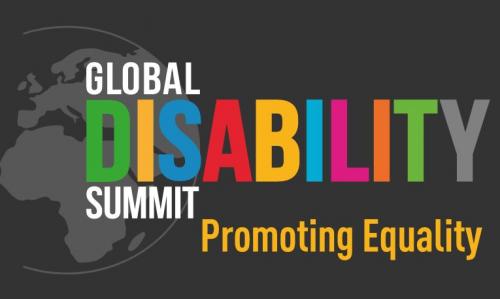
https://gds-imagez.s3.amazonaws.com/bkqhgybm7alauj7icx1n4j6oa2yw?respons...
The Secretary-General of the United Nations participated in the Summit together with high-level representatives from UN member states. Other participants included heads of UN organisations and representatives of multilateral development banks, the private sector, organisations of persons with disabilities, civil society organisations and academia.
During the Summit, participants reaffirmed the CHARTER FOR CHANGE adopted by the 2018 London Global Disability Summit.
The charter from 2018 acknowledged the important progress that had been made in the decade since the adoption of the United Nations Convention on the Rights of Persons with Disabilities (CRPD). But it also pointed to the need for intensified efforts to generate change through implementation of the Convention and fulfilment of the Sustainable Development Goals. During the 2022 Summit, participants reaffirmed their commitment to ensuring that political will and leadership generate lasting and meaningful change for persons with disabilities.
The widespread participation of different stakeholder groups underpinned the global commitment to accelerating disability inclusion through effective collaborations. The strong and important messages conveyed from the Youth Summit and the Civil Society Forum, as well as from Regional Summits, demonstrated the breadth and depth of the commitment to disability-inclusive development and humanitarian action across regions and areas of work.
During GDS 2022, approximately 1 300 commitments were made by representatives from all stakeholder groups, distributed across the five thematic areas. All regions of the world were represented, and 44 countries have made commitments. Organisations of persons with disabilities (OPDs), civil society organisations and multilateral organisations demonstrated their continued support for this agenda.
Since the London Summit in 2018, the world has been hit hard by the COVID-19 pandemic. Participants underlined the need to build back better, and for pandemic recovery measures to ensure that systems and societies are inclusive, resilient, and sustainable. Governments of Ghana and Norway and the International Disability Alliance During the Summit, the co-chairs noted the following:
• Participants are committed to a human rights-based approach to inclusive development with a particular focus on gender equality. An intersectional and holistic approach is necessary for moving forward.
Participants are committed to promoting meaningful engagement of OPDs through leadership and diverse representation of all persons with disabilities at the front and centre of change, as leaders, partners, and advocates. This includes the active involvement and close consultation of persons with disabilities of all ages and their representative organisations across all stages of programming and on all issues that concern them. For this to happen, participants made a commitment to support OPDs in developing their organisational and technical capacity to be able to play this role as strong counterparts.
Participants reconfirmed their commitment to change practices to make all humanitarian action fully inclusive and accessible to persons with disabilities, and mainstream inclusion in disaster risk reduction and response to the impacts of climate change.
They also made a commitment to strengthen the participation of persons with disabilities and engagement with ODPs in humanitarian and climate action. • Participants reaffirmed their commitment to progress and to supporting actions that advance an inclusive and accessible quality education system for all learners with disabilities, with the necessary resources to put plans into practice: every child has the right to learn. • Participants emphasised the need to achieve health and well-being for all persons with disabilities, which will only be possible when disability inclusion is a priority for the health sector. It is important that all stakeholders collaborate in designing equitable health programmes and policies, addressing inequalities in social determinants of health.
• Participants stressed their commitment to eliminating barriers to economic empowerment and financial inclusion so that persons with disabilities can secure a livelihood, enjoy decent work, and achieve financial independence.
• Participants acknowledged the need for an increased effort to strengthen community inclusion, including by providing disability-inclusive social protection schemes, promoting community-based services that ensure the well-being of persons with disabilities, and guaranteeing the availability and affordability of appropriate assistive technology.
Participants recognized the need to ensure all commitments be delivered. The GDS commitment tracking system should serve as the platform where all parties can share their progress. As co-chairs, we value the high-level engagement from all stakeholders. We reaffirm our commitment to eliminating stigma, barriers, and discrimination against persons with disabilities through legislation, policies and advocacy work done together with organizations of persons with disabilities. This will make a difference for 15% of the world’s population. Governments of Ghana and Norway and the International Disability Alliance










Add new comment